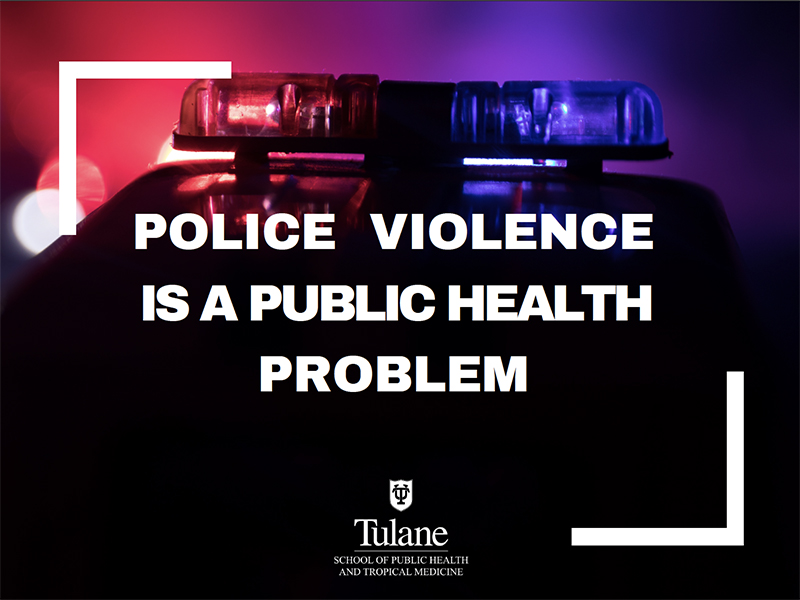Police violence is a public health problem

And justice for all.
The verdict in the Derek Chauvin trial was announced yesterday afternoon, convicting the former Minneapolis police officer on all counts levied against him. Some are hailing the conviction as a sign that justice has prevailed.
But has it?
It’s clear that we have a long way to go. At almost the same time that the verdict was being announced, 16-year old Ma’khia Bryant was shot and killed by police in Columbus, Ohio. It’s been just over a week since Daunte Wright was killed just ten miles from the courthouse where Chauvin was convicted. And about a month since 13-year old Adam Toledo was killed in Chicago.
In fact, over the course of the Chauvin murder trial, at least 65 other people were killed at the hands of law enforcement. More than half of the victims were people of color.
According to a paper published in the American Journal of Public Health, between 2012 and 2018, 8% of all adult males who died by homicide were killed by police.
Another study found that for the year 2020, there were only 18 days in which the police didn’t kill at least one person.
This is a public health problem.
This is a financial problem too.
According to data from big city police departments compiled by FiveThirtyEight and the Marshall Project, the nation’s three largest cities – New York, Los Angeles, and Chicago – paid out more than $2.5 billion over the last decade for legal settlements resulting from police abuses. Police officers may not be the highest paid employees, but they are the most expensive.
To be sure, this is not a problem with an easy solution. It’s been almost a year since Chauvin murdered George Floyd and little has changed. There are calls to defund the police, but exactly how to do that remains elusive, especially since police departments are decentralized and instituted at the city or county level throughout the country.
Last year, the federal government resumed awarding grants for research on firearm violence prevention after a ban of more than 25 years. To my knowledge, however, none of that addresses police-involved firearm violence. It should, and soon. Lives depend on it.
As a public health community, we need to be engaged with these issues. We need to consider how we can be part of the solution. All of us. Not just BIPOC members of our community, everyone. This is a matter of health equity and social justice that goes to the very core of what public health is about.
